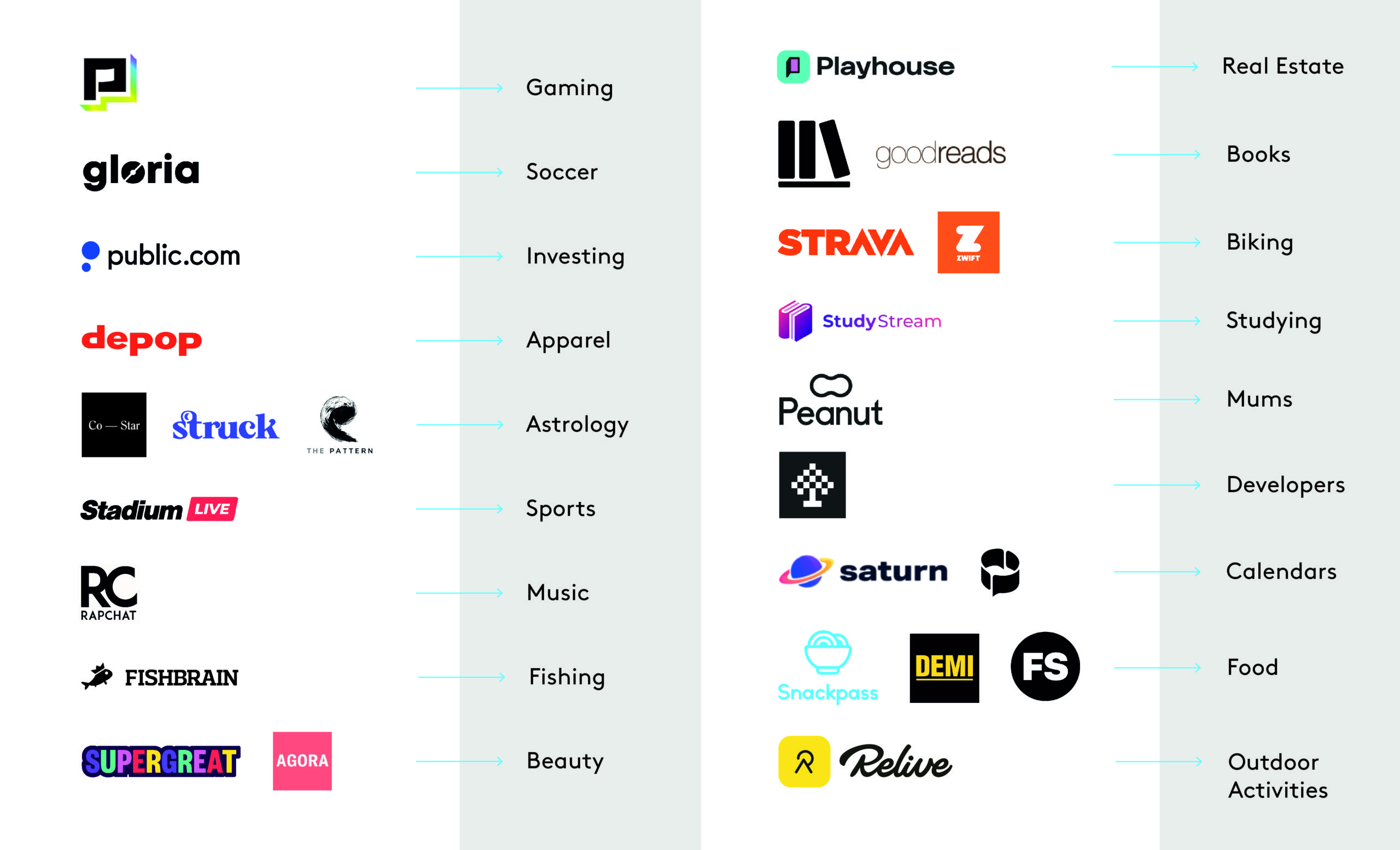Meet the startups redefining the future of social media
On a weekly basis, I see a tweet with someone complaining about Instagram. In Jean de La Rochebrochard’s case, he calls it a soulless product. That its initial value proposition, to build community and inspire creativity has given way. “It’s a commerce app”.

The age of Web 2 was characterised by a great unbundling; old media suffered as audiences became enthusiastic curators of their own content. We saw it play out in newspapers and magazines, but now, as we enter Web 3, we’re seeing it play out in new media too. Alienated users are moving away from the social media platforms that dominated the 2010s and towards a new generation of apps; ones that promise to replace the likes of Instagram have lost.
Authenticity is everything
Instagram is getting boring, and failing to connect with younger users. Writing in the FT, Elaine Moore identified 2019 as the year that the app lost its way “when a photo of an egg overtook Kylie Jenner as the most-liked Instagram post”. It’s a flippant point – but one with some truth to it. The egg’s success was part of a coordinated campaign, with users expressing their frustrations at the airbrushed hyperreality that had come to define the ecosystem.
In a recent blog, Rex Woodbury characterised that reality: Instagram has become “performative, curated and manicured”. The successful platforms of tomorrow are ones which will reject this paradigm. New platforms will need to create new social dynamics, as Instagram has done – but ones that which resonate with the kind of authenticity younger users demand.
Instagram has become a complex affair, with a multitude of functions and services. For users arriving to the platform today, without the consumer loyalty built up over a decade, the absence of a straightforward use case is frustrating. Beyond authenticity, new platforms will need to strive for simplicity, keeping their services lean and direct.
Building the stack
One corollary of this move towards simplicity is, necessarily, the emergence of a bigger ecosystem. As users reject a single, monolithic platform, we are seeing their social media stacks growing ever-bigger, as they turn to platforms that cater more directly to their interests – be they football, music, gaming, etc. The unbundling of cable TV illustrated consumer willingness to subscribe to a range of specialised streaming services, for focused access to the media that matters to them. The same is happening in social.

DNA for success
The ethos of social media is changing, and business models need to change with it. So, what’s in the DNA of the successful social platforms of tomorrow?
Privacy
Beyond a lack of authenticity, or an overly-complicated service, users are fed-up with being sold to. A renewed focus on privacy is, at least in part, fuelling a backlash to ad-based business models. Companies are adopting multi-modal approaches, leveraging micro payments, tipping and digital merchandise. NFTs have already proven that a new generation of internet users are happy to spend money on digital intangibles; not only is it gratifying – it also offers a way of directly supporting the creators and communities they believe in.
Authenticity
As we’ve established, authenticity is critical. Platforms that actively engage with pre-existing behaviour are likely to hold onto this, even as they establish new habits in users. Saturn, for example, is a social calendar for students, who can share their class schedules through the platform. Timetables have long been a fact of life, but Saturn has opened a new conversation between users around these schedules.
New utilities
Where the archetypal Instagram post has become, if not an egg, certainly a carefully posed, highly manipulated image, emerging image-sharing platforms are instead focused on the removal of user control – and by extension, artifice. French app BeReal pings users at a random point in the day, giving them a two-minute window in which to snap and post an image of whatever they happen to be doing at the time. Lapse creates a similar behaviour. Its mobile app enables users to create collaborative, digital photo rolls, with pictures being revealed in a rapid-fire GIF (a “lapse”) after the roll is complete. This mimics the traditional disposable camera. This authentic approach removes the pressures of social media by enabling users to live in the present and retrospectively look back on the full spectrum of memories.
Vertically specialized
Beyond authenticity, a vertically specialised approach stands to create communities of genuinely likeminded individuals. Gloria is building a global community around football; Rapchat, around music; and Powder around gaming content.
Final thoughts
Finding one utility that generates success and traffic is usually not enough to make it a sticky product long term. BeReal may have captured an audience with its proposition, but what’s next? A service can always build outwards, capturing an ever-larger market share; but how does an app predicated around a direct and simple new behaviour sustain interest- and how does it monetise? That’s the fun challenge.
It’s conceivable that we’ll see a cycle emerge as a new generation of apps and users reaches maturity; that Instagram’s pattern will repeat itself. It’s critical, therefore, that entrepreneurs with an eye on the social media landscape of tomorrow don’t just learn from Instagram’s successes, but also its mistakes.
As streaming services show, consumers today are happy to build their own bundles, curating a portfolio that reflects their interests and values. They’re exhausted by the pressure of negative peer-comparison. And most of all, they crave an authentic human connection. The past is filtered; the future is about keeping it real.













